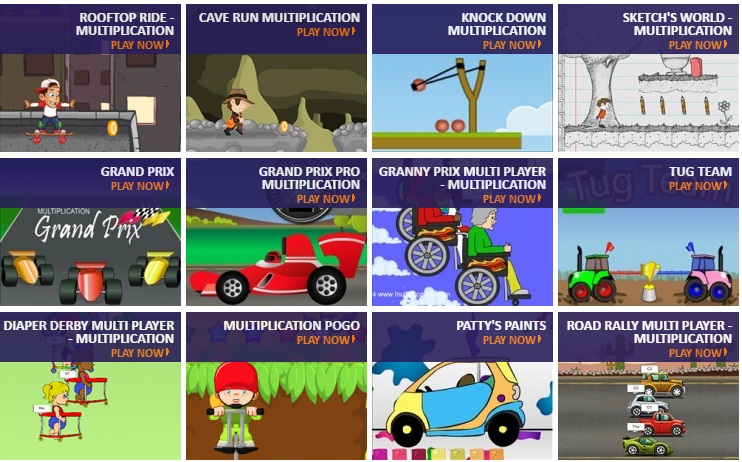
Mathematics is the core subject in the education system. Kids from an early age start making their base strong by learning numbers. And, eventually raising their level based on their understanding of mathematical concepts. After getting acquainted with counting numbers, young children might find it difficult to remember and understand the mathematical operations. However, you have to put a lot of effort into teaching basic multiplication and addition to your children.
How do you help your child in learning multiplication? Well, there is a need for constructive strategies to teach kids multiplication in such a way that they are able to understand the concept easily. To accomplish this, you can conduct multiplication games for kids so that they can engage themselves for long periods of time. There is a substantial list of games available for kids which not only help them to learn multiplication but also entertain them.
Similarly, you can design or implement activities or games that can help your child in learning addition. Learning these mathematical concepts will help your kids in whichever field they are in. For example, medical, engineering, finance, technology, etc. Not to forget, these concepts are basically used in our day to day life in order to solve simple mathematical calculations. To make it convenient for kids, you can conduct games at home to teach them simple tips and tricks to learn multiplication and addition.
Engaging Games For Learning Multiplication
Is your child always eager to learn maths? If not, then trying some innovative and creative games can help your child in this regard. Unless there is exciting activity involved, kids might not feel interested in learning. To overcome this, you must adapt different teaching methods so that your child is in love with the subject and is ready to learn mathematics anytime and anywhere. Some of the games that you can plan for your child are as follows:
- Make Multiplication Flashcards: Encourage your child to make flashcards for the learning multiplication in a systematic way. Ask them to multiply the given numbers such as 2 x 2= 4. Kids will start connecting the answers with the drawing. This way, they can learn multiplication as well as engage themselves in understanding the concept.
- Recite multiplication: Needless to say, multiplication is one of the basic arithmetic operations in mathematics. Therefore, it is mandatory for young children to get acquainted with multiplication from an early age. Encourage them to recite multiplication tables in a creative way. You can give random numbers to do multiplication such as 3 x 3=6.
Engaging Games For Learning Addition
Apart from multiplication, addition is one of the important arithmetic operations in mathematics. Therefore, addition can be taught to the children with the help of exciting games. It will motivate them to learn more. Some of the exciting activities for learning addition are mentioned below:
- Adding objects: Place a box of apples in front of kids. Ask them to count the total number of apples kept inside the box. Similarly, provide a box containing pencils, mangoes and candies.
- AddingToppings: Kids love pizza. Isn’it? Prepare pizza by adding different types of toppings such as 9 Jalapeno, 6 olives and 8 cubes of mozzarella cheese. Now, ask kids to add the number of toppings on the pizza. With this activity, kids will not only enjoy delicious pizza but also learn to add the toppings.
Benefits Of Learning Multiplication And Addition
Learning multiplication and addition is really important for kids to develop their mathematical skills. After attaining mastery in mathematical concepts, kids can solve any problem with accurate solutions. In this regard, multiplication and math addition games for kids play a very important role in providing a strong base. Some of the benefits of learning multiplication and addition are as follows:
- Solving problems quickly and accurately.
- Visualising answers in their mind.
- Understanding the mathematical concepts effectively.
- Solving problems involving addition and multiplication in everyday life.
- Developing interests and confidence in learning mathematics.







